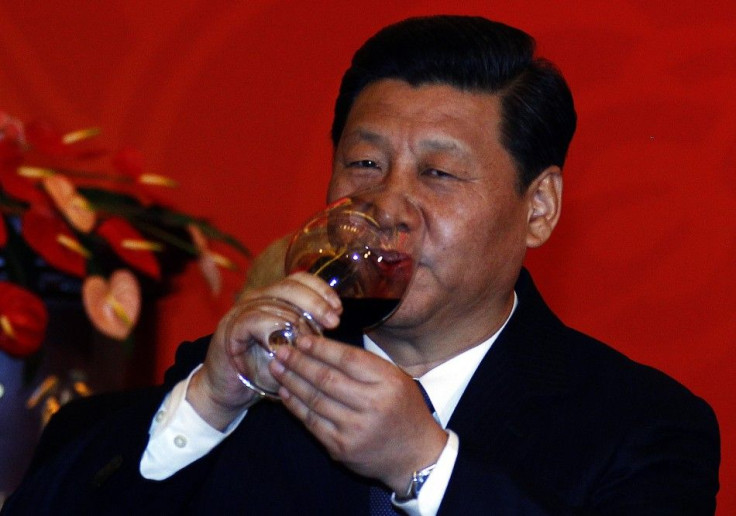China: Communist Party Congress Opens With Hu’s Warning Against Corruption

China’s outgoing President Hu Jintao Thursday opened the Communist Party’s congress by cautioning the delegates about the threat posed by corruption.
Addressing more than 2,000 delegates gathered at Beijing's cavernous Great Hall of the People for the week-long session, Hu said the failure to tackle corruption “could prove fatal to the party.”
"If we fail to handle this issue (corruption) well, it could prove fatal to the party, and even cause the collapse of the party and the fall of the state," Hu was quoted as saying by Reuters.
"Reform of the political structure is an important part of China's overall reform. We must continue to make both active and prudent efforts to carry out the reform of the political structure and make people's democracy more extensive, fuller in scope and sounder in practice," he said.
"We must never let words act in place of the law or (personal) power replace the law; nor will we allow the ignoring of the law for personal benefit," Hu said.
Security across Beijing has been very tight in the run-up to the congress -- a much-awaited stage that ushers in a once-in-a-decade leadership transfer - - with many dissidents taken into custody by the authorities, the BBC reported citing rights groups.
Hu’s stark warning against corruption follows the expulsion of disgraced politician Bo Xilai from the party and top legislature on charges of receiving bribes among other crimes.
Outgoing Premier Wen Jiabao also recently faced serious allegations of corruption targeting his family in the Western media which said Wen’s family members, including his 90-year-old mother Yang Zhiyun, his son, daughter, younger brother and brother-in-law have become “extraordinarily wealthy” during his leadership since 1998 when he was named vice premier.
The damning investigative report published by the New York Times late last month was met with Wen’s family threatening legal action against the publication.
At the congress, Hu is set to give up his role as party chief to Xi Jinping, the current vice-president of China and his anointed successor while Vice Premier Li Keqiang is expected to be named premier, replacing Wen.
With the U.S. election finally over, China’s power transition has grabbed the world focus with Xi and Li poised to ascend to the most powerful ranks on Politburo Standing Committee, the country’s highest-decision making body.
Xi’s ascent as the president of the most populous country in the world comes in the wake of growing social unrest and popular dissent over corruption charges against political bigwigs and high income disparity.
Xi, 59, is the son of the revolutionary hero Xi Zhongxun who was the minister of propaganda and education under Mao Zedong and later vice premier and secretary-general of the State Council under Zhou Enlai.
Premier-in-waiting Li, 57, is a bureaucrat with an “affable manner, fluent English and more youthful bearing than his stiff party peers, and has voiced support for the kind of economic reforms many experts say China sorely needs,” according to the AFP.
At the congress, Hu stressed on the importance of a new economic model to respond to domestic and global changes.
"On the basis of making China's development much more balanced, coordinated and sustainable, we should double its 2010 GDP and per capita income for both urban and rural residents (by 2020)," he said.
The economic reforms that China undertakes is of vital importance for the U.S., China’s single biggest trade partner and where the issue of Chinese resorting to unfair trade practices was a hotly debated issue during the presidential debates.
“Putting China on a path of more sustainable, less environmentally damaging growth increases the chances that its government will be more confident, outward-looking, and constructive internationally,” Foreign Policy Magazine noted. “China, in turn, has a major interest in U.S. success in getting its deficit under control, given how heavily Beijing has invested in the health of the U.S. dollar and the American economy.”
© Copyright IBTimes 2024. All rights reserved.






















